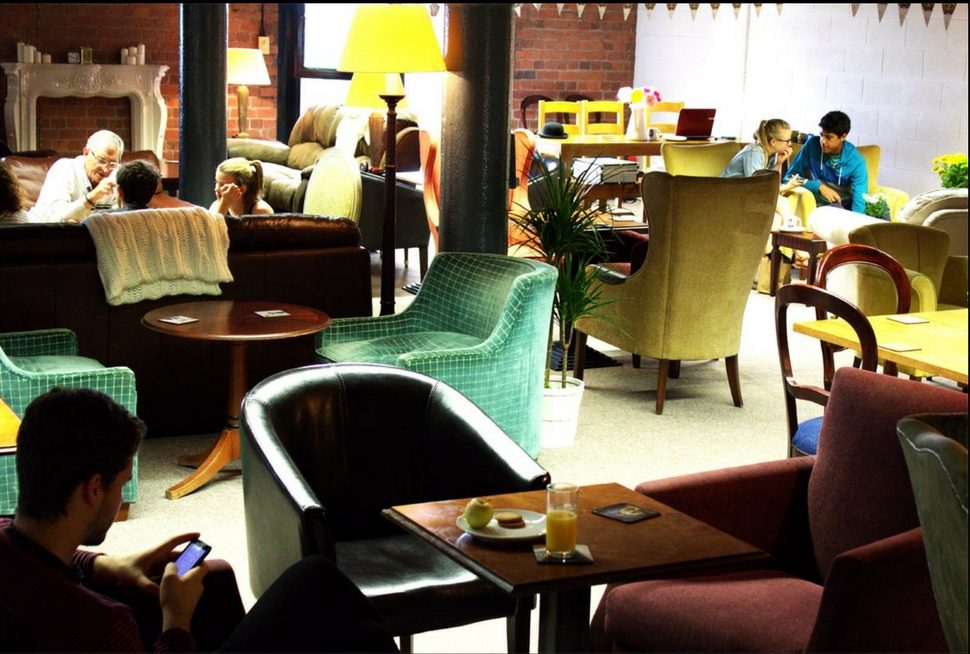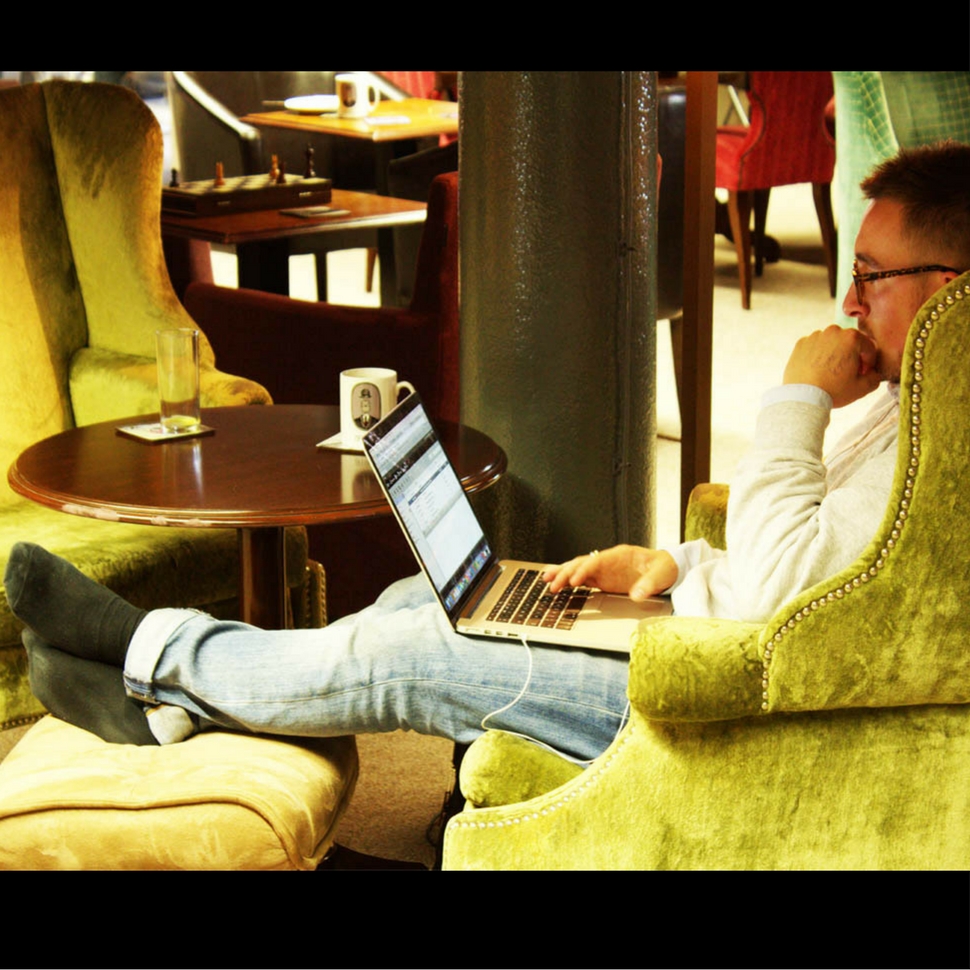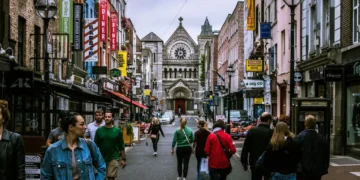This month we’re talking Game Changers on Allwork – the people, places and concepts that are changing the way we think about flexible workspace.
Does it get any more changeable than space that charges by the minute?
It certainly does. How about a space that offers free drinks and snacks, free Wi-Fi, doesn’t require membership, and fuses a place of work with a homely sitting room environment?
We’re not making this place up. It exists. The place is Ziferblat, an international ‘anti cafe’ with 17 locations across Europe and dozens more on the way.
Billed as a ‘pay-per-minute sitting room’ where everything is free except for the time you spend, Ziferblat thrives on the sharing economy.
“Technically it’s an office as we give our food and drink away for free,” explains Ben Davies, head of marketing at Ziferblat UK & Ireland. “We take out ten-year property leases just like an office. But we’re not coworking, we’re not meeting rooms, we’re not any of those things. We’re a pay-per-minute sitting room.”
Conceived in Moscow by founder Ivan Meetin in 2011, Ziferblat was initially funded by donations. This was followed by a pay-per-minute model with the addition of tea and cakes, and today, this same concept is dotted across multiple locations. Currently, the list includes Moscow, Saint Petersburg, Ljubljana in Slovenia, as well as UK cities Manchester, Liverpool and London.
Typically, it costs around 6-8 pence per minute to use the lounge space – “you can stay all day for £18!” – with private meeting rooms available to rent on the same basis. No two days are the same, with spaces welcoming an eclectic blend of laptop freelancers, tourists, knitters, families and students.
They also count small businesses among their list of regulars. One of them, a small content agency team, spends most of their time out on the road visiting clients, so Ziferblat offers a cost-effective place to drop in and catch up.
But while the brand is catching on fast, they’re not trying to re-invent the coworking wheel.

“We’re somewhere between a home office and coworking,” Davies said, “but we don’t want to infringe on other independent spaces. We would rather try to help each other out, and work with them rather than against. We’re all in this together.”
That’s not to say Ziferblat is happy to hover on the edge of the market. Their next location is none other than MediaCityUK – one of the hottest commercial property developments in the UK.
Ziferblat is set to occupy 6,000 sq ft over the ground floor and mezzanine levels of MediaCityUK’s coworking space, ‘Tomorrow’ – demonstrating Ziferblat’s intention to partner with, rather than against, other spaces.
So how DO they make money?
“Everyone asks that!” says Davies.
A key part of their model comes from understanding the cost structure of basic elements like coffee. “It costs 4 or 5 pence to make an Americano coffee, not the £3 you’re charged for it. It’s little tricks like that. Plus, we’re all self-serve, so we don’t need a high staff-guest ratio. We also recoup costs by running events and meetings.”
Their solution is part of the Sharing Economy, and it has arrived at a time when work and lifestyle are colliding in more ways than ever before.
“We think of ourselves like Uber or Airbnb in terms of structure. People don’t own things anymore; they rent them when they need them. In city centres, where we are, not everyone can afford a huge living room. So they come and use ours instead.”
MediaCityUK will be Ziferblat’s 17th branch internationally, and they already have plans for more locations. Many more, in fact.
“We hope to open 50 in total,” added Davies. “We’re looking at Leeds, Sheffield, Birmingham, Bristol, Brighton, Newcastle – basically any city with a university or a cathedral, preferably both.”
They might not consider themselves a game-changer. Yet Ziferblat’s model is a tried-and-tested concept that’s enriching the flexible workspace industry and adding its own complimentary stamp on the coworking world: from Russia with love.
Images grabbed from Ziferblat’s webiste.


 Dr. Gleb Tsipursky – The Office Whisperer
Dr. Gleb Tsipursky – The Office Whisperer Nirit Cohen – WorkFutures
Nirit Cohen – WorkFutures Angela Howard – Culture Expert
Angela Howard – Culture Expert Drew Jones – Design & Innovation
Drew Jones – Design & Innovation Jonathan Price – CRE & Flex Expert
Jonathan Price – CRE & Flex Expert












